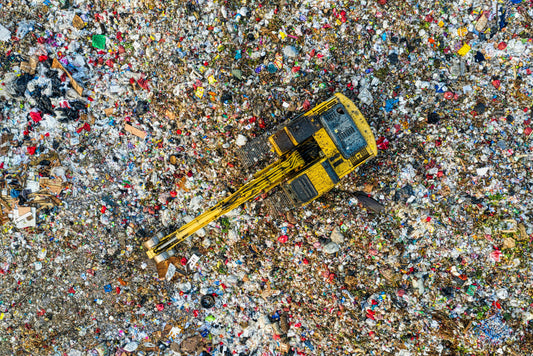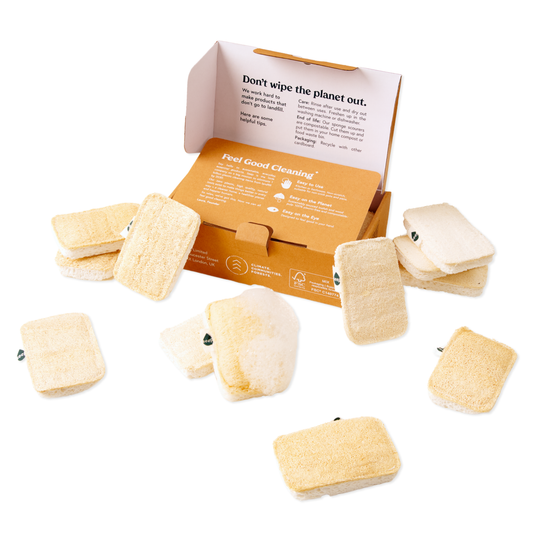
We've teamed up with nutritionists at DR.VEGAN® to understand what is PFA, a vast group of chemicals that have only recently gained public attention. This article explores where these chemicals are found and whether they pose a health risk, and provides guidance on how to reduce exposure to them.
What is PFA?
PFA’s (per- and polyfluoroalkyl substances), or forever chemicals, are a group of toxic, man-made chemicals that are prevalent in a range of everyday products, including food, beverages, air, soil, water, and dust.
PFA’s pose significant health risks due to their extreme persistence and stability, meaning they don’t break down easily. They are also grease, water, and heat resistant. They are almost impossible to get rid of once in the environment, which is why they have adopted the name ‘forever chemicals’.
Food and drinks containing PFA’s
90% of the PFA’s present in our bodies come from what we consume, with drinking water unexpectedly ranking among the top sources of PFA’s. While much remains unclear about PFA’s, recent studies indicate that food packaging is one of the main sources of contamination. These chemicals are not always intentionally added to food or drinks but can contaminate them due to their widespread use in packaging and processing.
Health risks associated with high PFA’s
The problem with PFA’s is that they can build up over time and don't break down, meaning if they end up in the environment or in our bodies, they won’t go anywhere.
Sue Potgieter, expert nutritionist at DR.VEGAN® says, even at low exposure, PFA’s are detrimental to health and are commonly consumed by both people and animals through contact, drinking, eating, or breathing in materials containing PFAs.
Their presence has raised concerns over a wide variety of health issues, including suppressed immunity, different types of cancer, high blood pressure, fertility issues, and many more. Concerningly, these are just a few of the issues that can occur; there could be much more and much worse impacts on the body, but there is not enough research on the full extent. Interestingly, some PFAs are also linked to specific organs.
How to minimise exposure to PFA’s
Though scientists are continually seeking solutions, taking proactive steps and being mindful of what we consume can significantly reduce our exposure.
- Detox your body and home. Focus on having a clean diet, cleaning your vegetables and household from toxins.
- Choose a water filtration system certified to remove PFAs.
- Purchase fresh food that doesn’t contain any packaging. Buy loose vegetables and, where possible, choose organic produce.
- Reduce your fast food intake and avoid greasy fast food packaging.
- Avoid warming food in paper or plastic containers. You can replace these with glass, stainless steel, or ceramics.
- Avoid specific types of non-stick cookware. The coating on non-stick pans contains forever chemicals, which can make their way into food as it cooks.
- Stay clear of waterproof clothing and stain-resistant fabrics.
- Be cautious of personal care products, and make sure to look at your product labels — avoid labels that state ‘fluoro’ or ‘perfluoro’.
- Make educated choices when purchasing supplements. This is why DR.VEGAN® supplements are 100% plant-based. All of their supplements contain zero additives, animal ingredients, bulking, binding, or colouring agents. Their packaging is also certified home-compostable and made with plant-based inks and seals.
DR.VEGAN® is on a mission to offer high-quality, sustainable supplements that contain zero nasty additives, which are both affordable and more effective than other supplements on the market.
Get 20% off DR.VEGAN®’s range of supplements with the code SEEP20
T&Cs: Can only be redeemed at www.drvegan.com for new customers only. Can only be used on one-time purchases only, subscriptions not included. Cannot be used in conjunction with any other offer or bundles.







